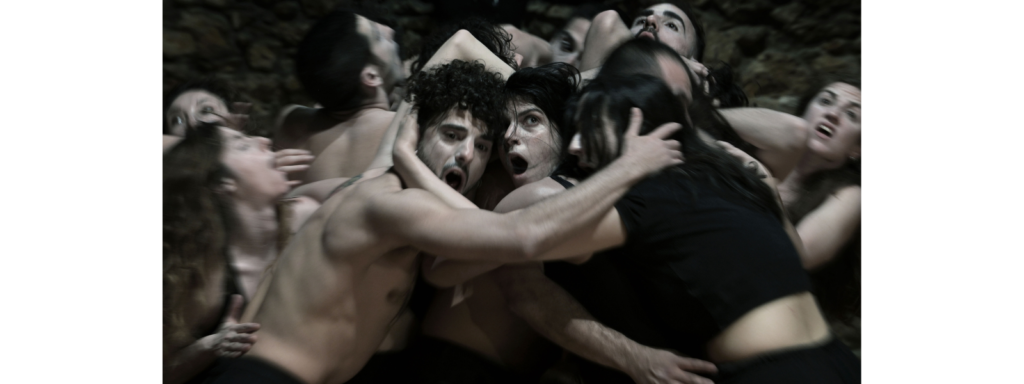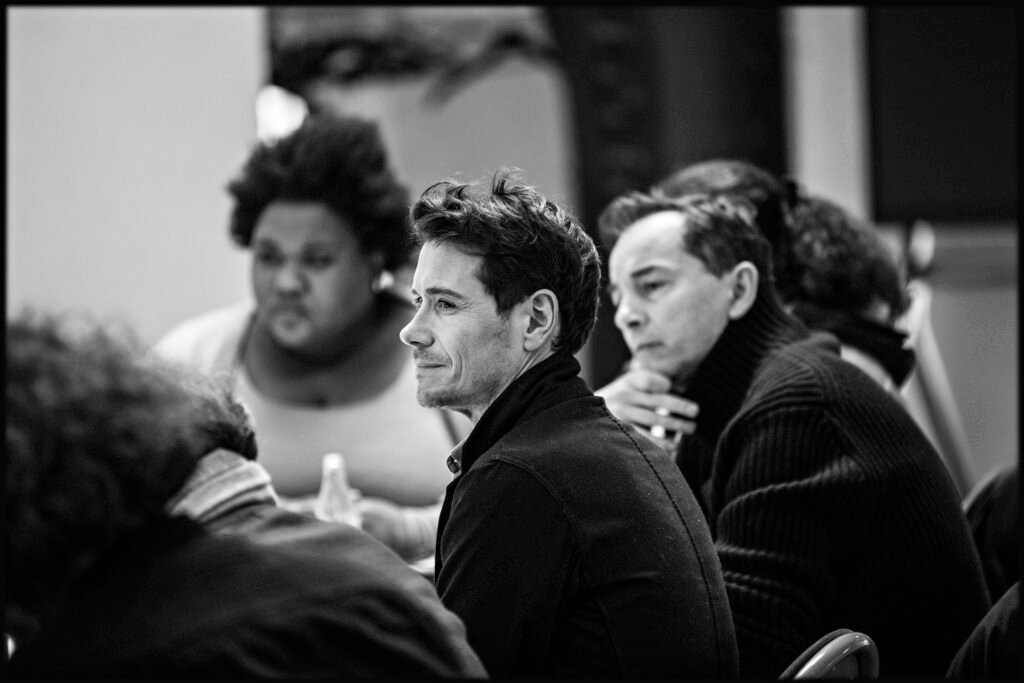The ancient theater of Epidaurus stands as a timeless testament to the enduring power of theater, a place where the echoes of ancient dramas still reverberate through the stone seats, connecting us to the rich cultural heritage of Greece. Watching a play at this majestic amphitheater is not just an experience; it is a way of life, a spiritual journey that transcends time and space.
Each summer, the Athens & Epidaurus Festival brings together a diverse array of theatrical productions, showcasing the talents of both Greek and international artists. This year, the festival promises to be a celebration of artistic excellence, with a lineup of captivating performances that will transport audiences to the heart of ancient Greek tragedy and comedy.

One of the most anticipated productions of this year’s festival is the world premiere of “Iphigenia in Aulis” by Euripides, directed by the acclaimed Timofey Kuliabin. This production promises to be a groundbreaking interpretation of the classic Greek tragedy, with a stellar cast of Greek actors bringing the timeless story of sacrifice and betrayal to life on the ancient stage.

The festival also features a rare performance of the Oresteia trilogy by Aeschylus, directed by the renowned Theodoros Terzopoulos. This epic production delves into the complexities of justice, revenge, and redemption, offering audiences a profound exploration of the human condition.
Oresteia was introduced in Athens, at the City Dionysia (En Astei Dionysia) in 458 BC, a year of high tension between the proponents of Oligarchy and those of Democracy, reflecting the political, historical, and social conflicts, and the violent upheavals of the time. Among the reasons for this tension were Ephialtes’ democratic reforms concerning the operation and structure of the Supreme Court (Areios Pagos). And while Athens at home was in a period of transition, it pursued an extremely bold policy towards other cities, allying at the same time with Argos, which had seceded from the Peloponnesian Alliance. The influence of both these historical events on Oresteia is apparent.
The author draws his inspiration from the myth of the Atreidae and the terrible curse cast upon their house. After ten years of war, the Palace of Mycenae is about to welcome its king, Agamemnon, as the triumphant general of all Greeks.
Aristophanes’ “Plutus” and “ Birds” bring a touch of humor and satire to the festival, with directors Giannis Kakleas and Aris Biniaris infusing these ancient comedies with modern relevance and wit.

“Plutus” plot takes place in 388 BC. The Peloponnesian War has ended with the Athenians left crashed and defeated, which marked the end of the Athenian hegemony. The honest Chremylus, a poor Athenian peasant, Aristophanes’ alter ego, is experiencing the new reality in a traumatic way: social values, ideas, and morals have fallen away.
The lack of resources and social justice, as well as the fear of impoverishment, terrify this romantic utopian, especially for his child’s future. He resorts to the Oracle of Delphi posing the agonising question ‘what can I do to ensure a secure future for my child?’. The oracle tells him to take care of the first helpless person he meets on his way. This is none other than the god Plutus, who generously gives away gold, money, and all material goods.
In Birds, Aristophanes tells the story of how two Athenians, Pisthetaerus and Euelpides, make the decision to leave the world of men in search of a city without pettiness and corruption, where one can live in peace and justice. Together with the Birds, they establish a state in the ether and build a wall between men and the gods.

The collaboration between the Comédie-Française and director Tiago Rodrigues in “Hecuba, not Hecuba” promises to be a thought-provoking and emotionally resonant exploration of the intersection between myth and reality, theater and justice.
In his first collaboration with Comédie-Française, Tiago Rodriguez takes on the story of Hecuba. Adjusting it in his ‘head-on’ idiom, he intertwines an ancient human being’s drama with that of a modern-day heroine always on the same ageless canvas –in particular, a Trojan woman’s and a present-day actress and mother’s. Tiago Rodrigues is used to saying that his writing does not have to do with the theatre but the actresses and actors that make up the theatrical play. Here, an actress rehearses Euripides’ Hecuba as she holds the role of Priam’s widow. After the defeat of Troy, Hecuba has lost everything: her husband, her throne, her freedom, and, what’s most tragical, almost all her children – she is a woman seeking for justice.

Lastly, Marianna Kalmpari’s production of Aeschylus’ “The Suppliants” shines a spotlight on the timeless themes of asylum and female empowerment, reminding us of the enduring relevance of ancient Greek drama in today’s world.Sixty years after the play’s first staging at the Ancient Theatre of Epidaurus, the Karolos Koun Art Theatre in collaboration with the Neos Kosmos Theatre presents Aeschylus’ The Suppliants directed by Marianna Calbari: a poetic and deeply political play at the centre of the modern concern on the concept of asylum in a democratic society –especially when those who are persecuted are women.
As audiences gather under the open sky of the ancient theater of Epidaurus, surrounded by the whispers of history and the majesty of the natural landscape, they are transported to a realm where the boundaries between past and present blur, and the power of storytelling reigns supreme. Watching a play at Epidaurus is not just a cultural event; it is a transformative experience that connects us to our collective past and inspires us to reflect on the timeless truths of the human experience.



In a world filled with distractions and noise, the ancient theater of Epidaurus offers a sanctuary for the soul, a place where the power of art and storytelling can truly touch the hearts and minds of all who gather there. So, let us embrace this opportunity to immerse ourselves in the magic of theater, to be transported to a world where the boundaries between reality and myth dissolve, and where the power of the human spirit shines bright. Let us come together under the starlit sky of Epidaurus and experience the beauty and wonder of ancient Greek drama in all its glory.
Source: Athens Epidaurus Festival









